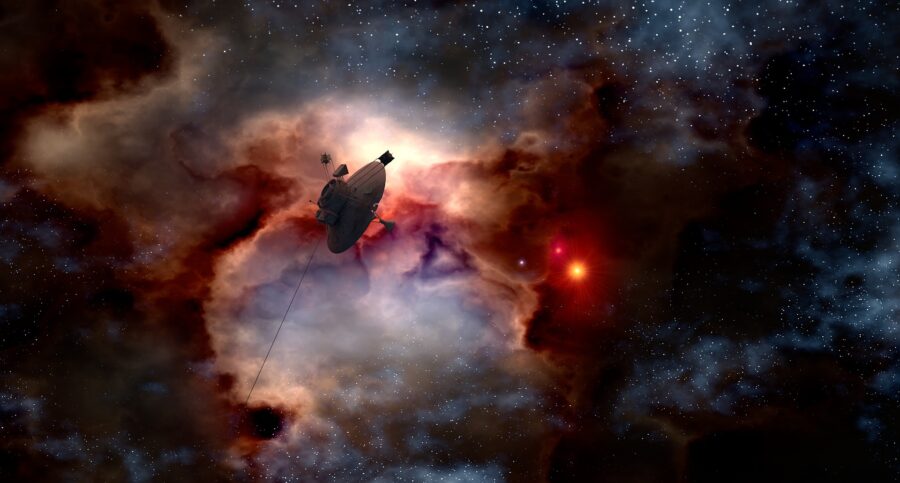Scientists Worried About Alien Probes
A recent paper explains evolving interstellar technology makes it likely space-faring civilizations won't exchange their first probes, but rather, their hundredth.

Ask a hundred scientists what first contact with an alien civilization would look like, and you’ll get back a hundred different answers. Futurism put forth the scientific theory of how humanity would react to an alien probe, and how strangely, the second probe might be the most important. Due to the reality of traveling light-years through space, the first probe to arrive on Earth may not be the first one that was sent in our direction.
University of California astronomer Graeme Smith recently published a paper going over the mind-bending thought exercise. Smith explains that first contact may come about from an ancient artifact drifting through space. That assumption assumes that an alien civilization sends out a probe as soon as they are capable, without waiting for sufficient interstellar travel technology. This is of course, what humans did with the Voyager spacecraft, which were sent out without the intention of being a probe, but prepared with a golden disc of information just in case.
The sheer distance of objects in space, which is so vast even reaching Mars, the closest planet to Earth, is realistically beyond the average human lifespan, makes it likely that it won’t be the first, second, or even third, probe that will reach us, but the two-hundredth. If an alien species continues to develop and refine their space-faring technology, it is likely that a probe sent in 14,000 years would arrive at the same time here as Voyager 2, launched in 1977, would on their planet.

During those 14,000 years, who knows what humanity will look like, making the information contained in Voyager 2 quaint and a relic of our ancient past. Working off of this line of thought, if humanity were to receive an alien probe, it would be studied, analyzed, and then most likely, we would send a response across the galaxy. By the time our response made it to, say, Alpha Centauri and Proxima B, that civilization would have likely advanced far beyond the initial probe, and that, according to some astronomers, could be a fatal mistake for our world.
Stephen Hawking once said “One day, we might receive a signal from a planet like Gliese 832c, but we should be wary of answering back.” Right now, humanity would likely be the passive recipient of a more advanced alien civilization’s probe, without being able to know what the real intentions of the aliens may be. Would they come in peace and brotherhood like the Vulcans in Star Trek: First Contact, or would they be similar to those from Independence Day?
Now that technology is reaching the point where signals can be more easily transmitted into the vastness of outer space, scientists are becoming more cautious about what we do to give away our position in the universe. Just one alien probe, confirming we’re not alone, could be enough to destabilize human society and that’s even without considering a further response, thousands of years in the future. Mathematically, humanity is likely not alone, but space travel takes so long to reach even the closest destination, that none of us will likely be alive when the probes make Earthfall.












